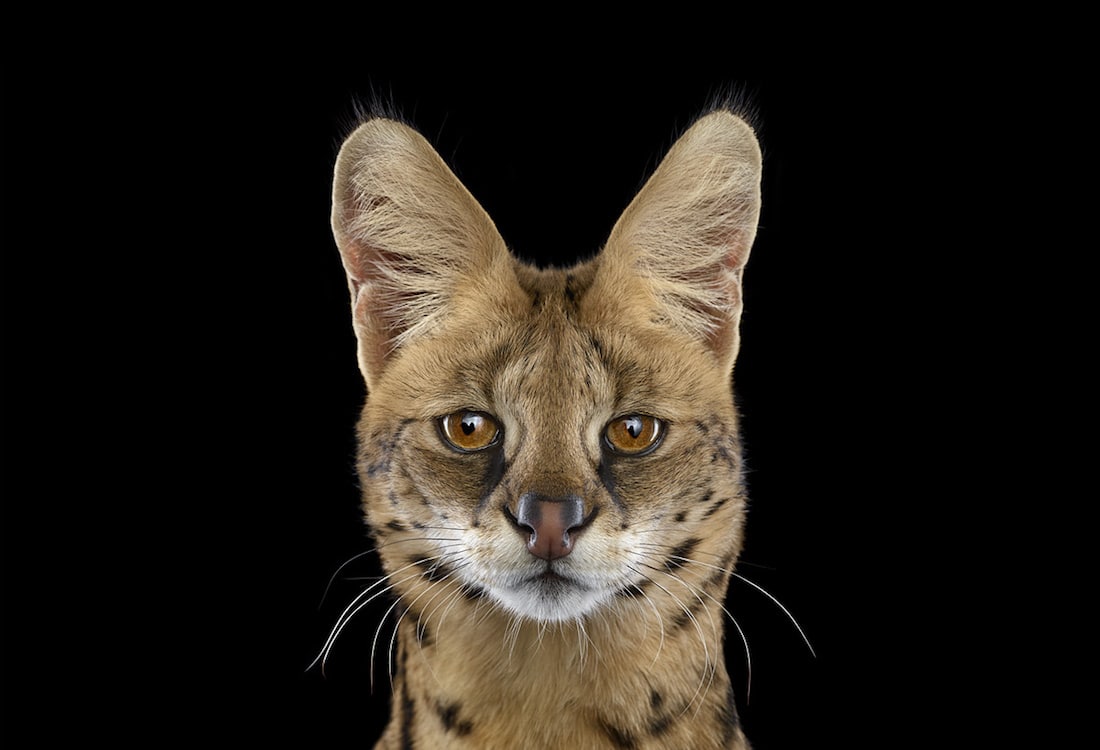
Serval
Photographer Brad Wilson captures expressive wildlife portraits inspired by the “instinct, intuition, and present moment awareness” that animals possess. In his ongoing series, titled Affinity, Wilson crafts emotive photographs that emphasize each creature’s features and illustrate their inherent connection to nature.
Each subject is positioned before a stark black backdrop. When paired with Wilson’s distinctively dramatic lighting, this aesthetic approach showcases the natural beauty of the fauna. A barn owl whose golden feathers appear to glow and a rhinoceros emerging from the shadows are just some of the animals that these eye-catching snaps celebrate.
In addition to serving as an artistic outlet for Wilson, Affinity also conveys his musings on modern life. With the belief that animals represent “a simpler life and a wilderness lost,” he hopes that his photographs can inspire viewers to rekindle their own relationships with nature. Wilson says, “Perhaps these images can stand as a testament to this other fading world, and remind us, despite the pronounced feeling of isolation that too often characterizes our contemporary existence, that we are not alone, we are not separate—we are part of a beautifully rich and interconnected diversity of life.”
We recently had the chance to discuss this meaningful project with Wilson. Read our interview below to learn more about Affinity.
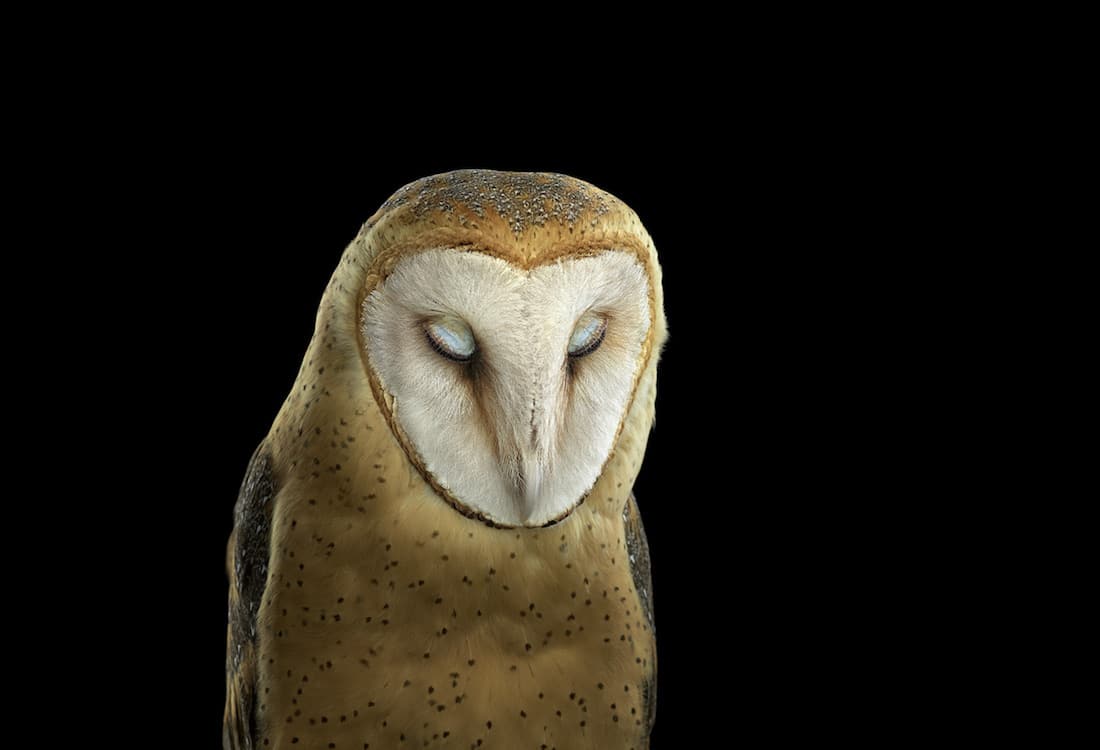
Barn Owl
Before photography, you studied the visual arts. What inspired you to shift your focus?
From an early age, I had an interest in art, and, as I got older and entered university, I decided that I wanted to make a living in some sort of creative profession. I realized pretty quickly that I was not going to be the next great American sculptor or painter but I discovered that I had a real affinity for photography. This field also offered me the added benefit of supporting myself with commercial jobs while pursuing fine art goals at the same time.
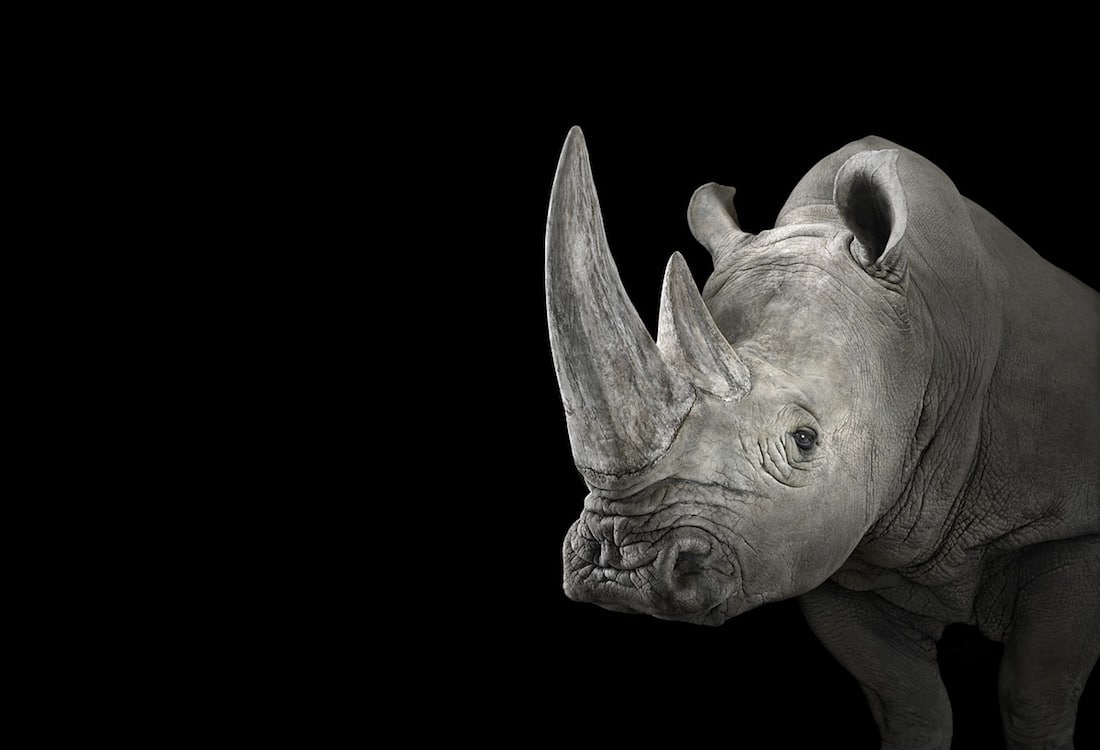
Rhinoceros
When did you begin employing animals as your subjects?
I spent 12 years in New York City doing portrait assignments for a variety of clients. While the work was rewarding, I felt like I was starting to do the same thing over and over again and it was time for some sort of change. I realized that I wanted to continue with portraiture, but my primary subjects needed to be different. Focusing on animals gave me an interesting and challenging new direction.
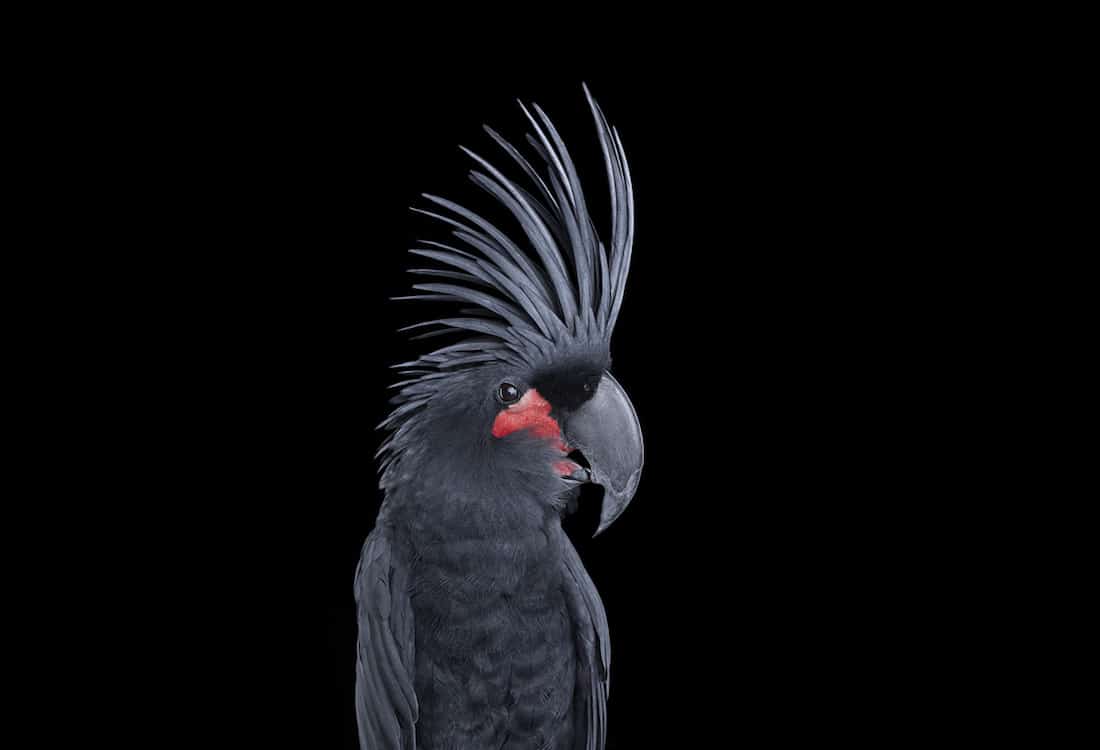
Black Palm Cockatoo
How did you decide which animals to feature in your series, Affinity, and how did you gain access to them?
At first, I gravitated toward the most iconic animals: elephants, lions, tigers, etc. After many phone calls and quite a number of dead ends, I found a few zoos, sanctuaries, and commercial trainers willing to work with me. Once I had a portfolio of images it became easier to gain access to a wider range of animals and I began to expand the series at that point.
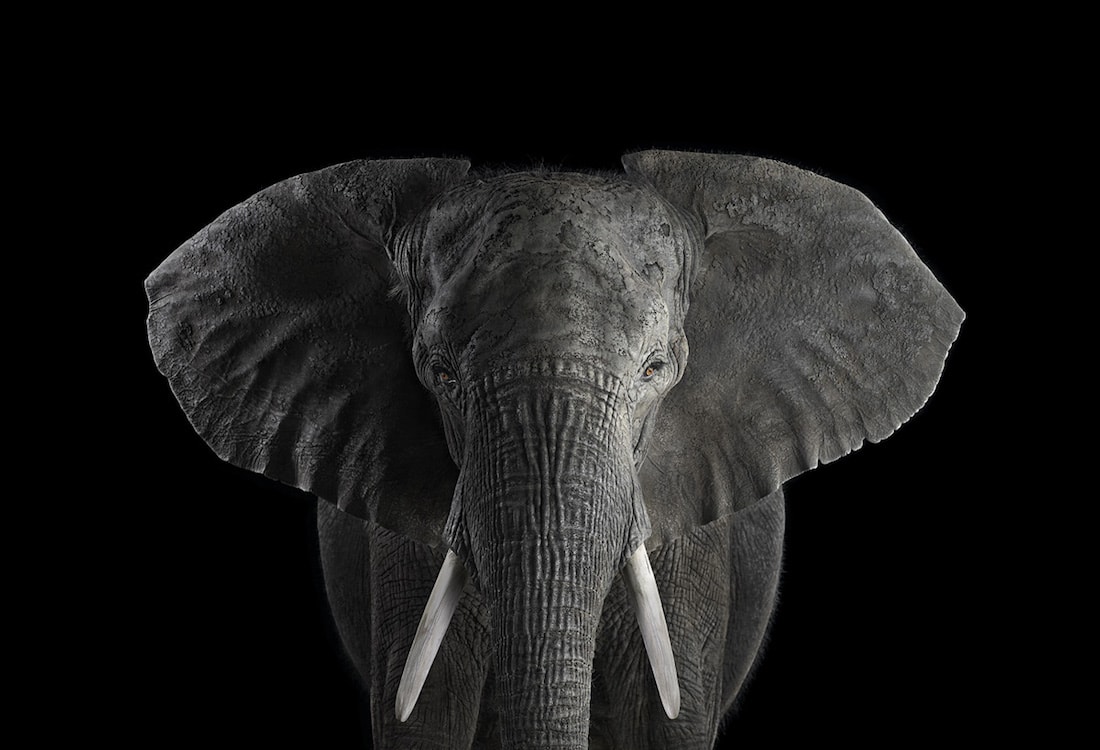
African Elephant
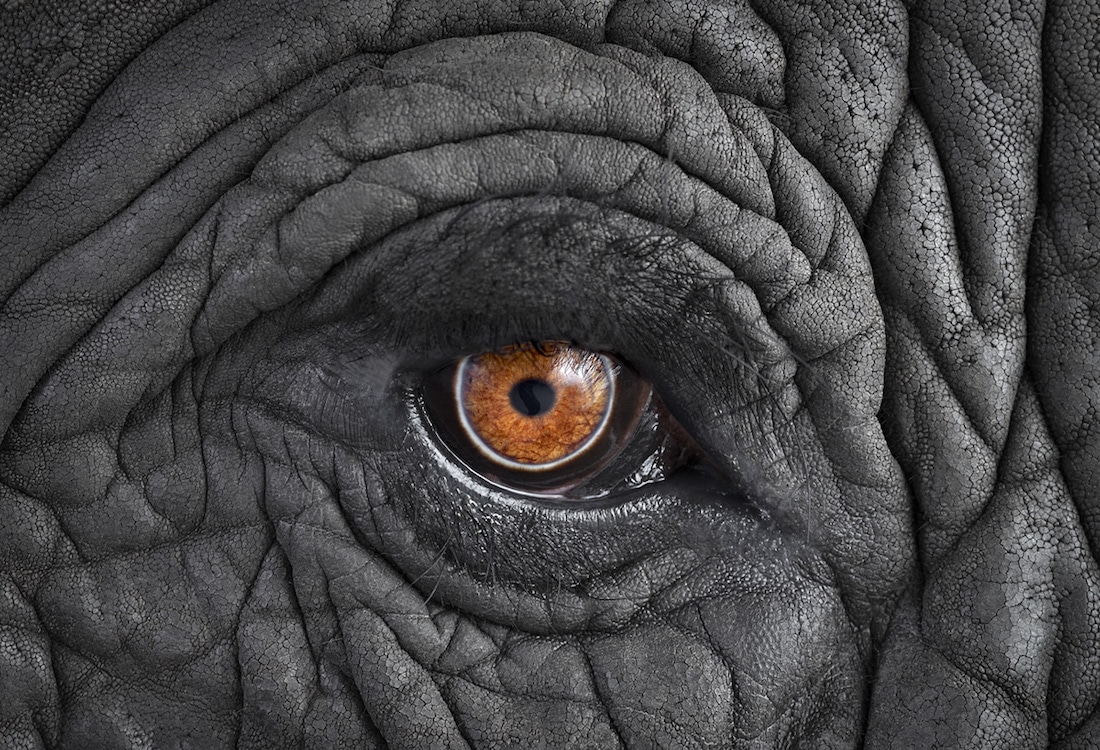
African Elephant
What is your process behind a typical animal photoshoot?
It’s hard to describe any shoot as “typical” but in general I set up a studio onsite where the animals live or have them brought to me (if possible). Each subject is scheduled for 1-4 hours and during that time I’m lucky to get 1-4 good minutes. I would describe each session as a sort of meditation in the middle of organized chaos: the animals are free to move around and they rarely hold still—I just wait patiently for the moment when something compelling happens. It’s always fleeting, but well worth the effort.
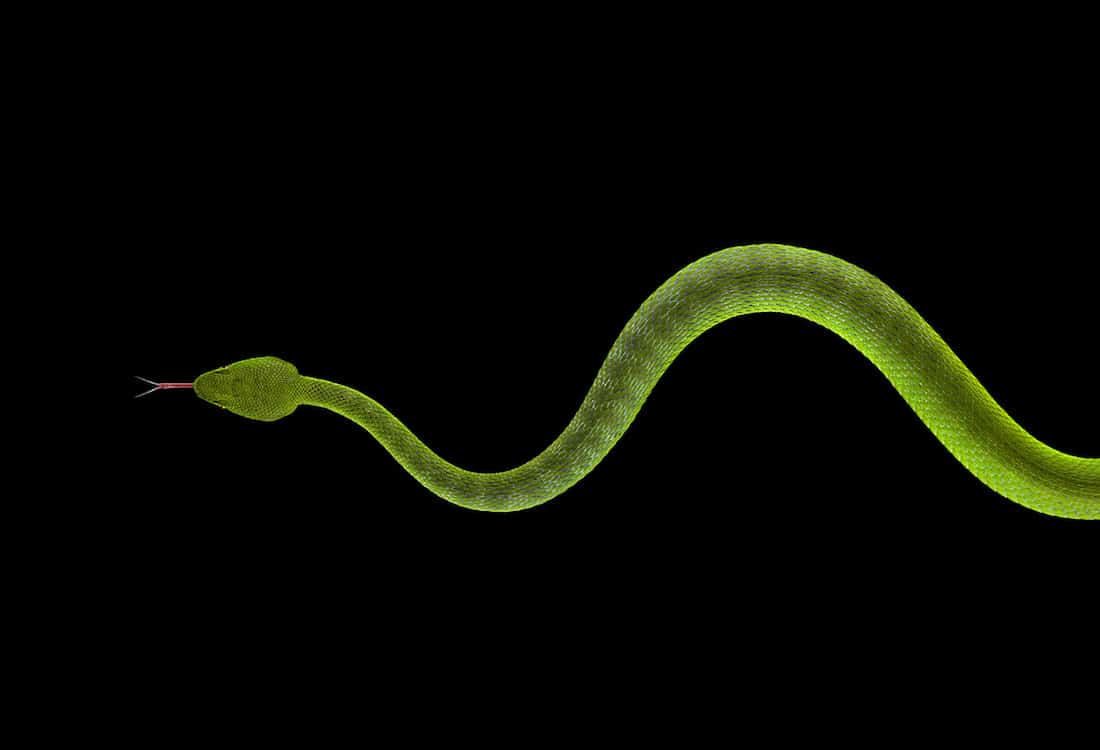
White Lipped Tree Viper
Which of these portraits is your favorite or the most memorable?
I don’t really have a favorite portrait—my experience with each animal was unique and special. However, the male mandrill (the world’s largest monkey) was probably one of the most memorable.
He was boundlessly energetic, vocal, powerful, and expressive. From the moment he entered the studio in Los Angeles he announced his presence by slamming doors, knocking over equipment, and hitting my leg. His trainer remarked that the mandrill’s best (and only) trick was not killing me. I was warned not to touch him, talk to him, or look at him. Despite these limitations, I found him to be a remarkable and compelling creature—and exceptionally beautiful. Even Charles Darwin said of these monkeys: “No other member in the whole class of mammals is colored in so extraordinary a manner as the adult male mandrills.”
Capturing a still and connected moment with him was a special and exhausting challenge, but made him quite unforgettable.
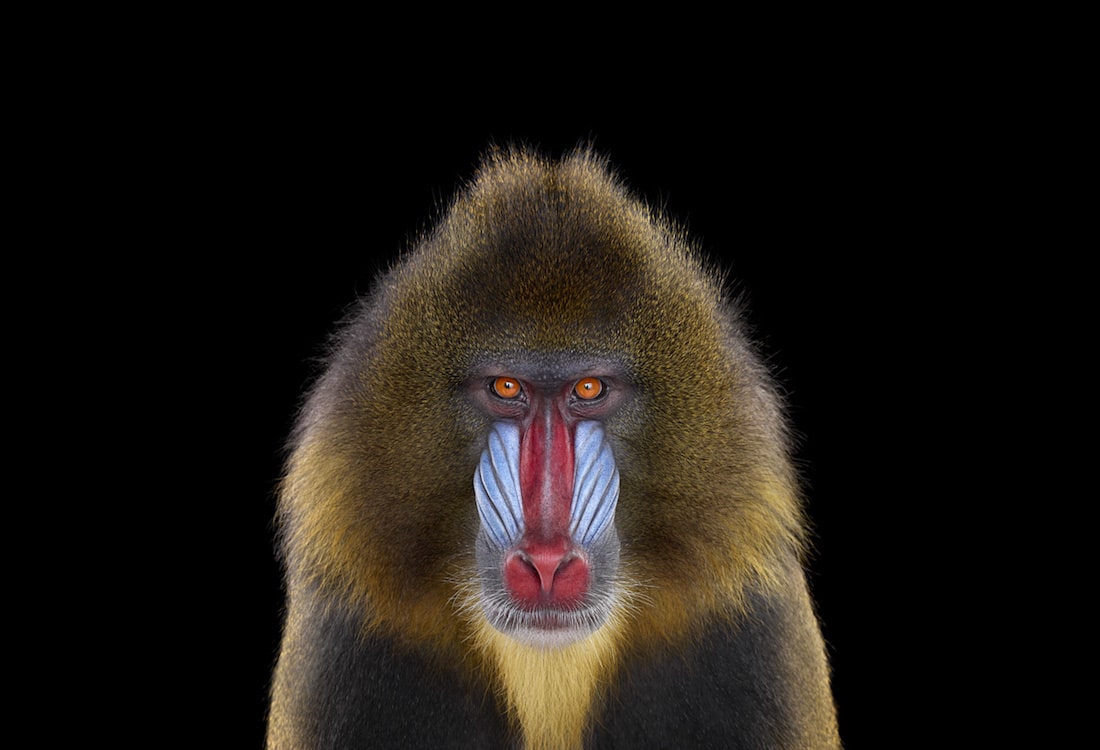
Mandrill
What challenges does this genre of photography present?
Access to the animals is the first big hurdle and requires a great deal of time, planning, and expense to properly arrange. Also, the lack of verbal communication on the shoots is especially difficult—you can’t tell a tiger to “sit” and look at the camera. The animals do pretty much what they want to do (within limits) and I have to find a way to get the image I want without directing them. In addition, since the animals are more wild than tame, there is a level of physical danger involved as well. Everything is done to mitigate this, but it still exists on some level.
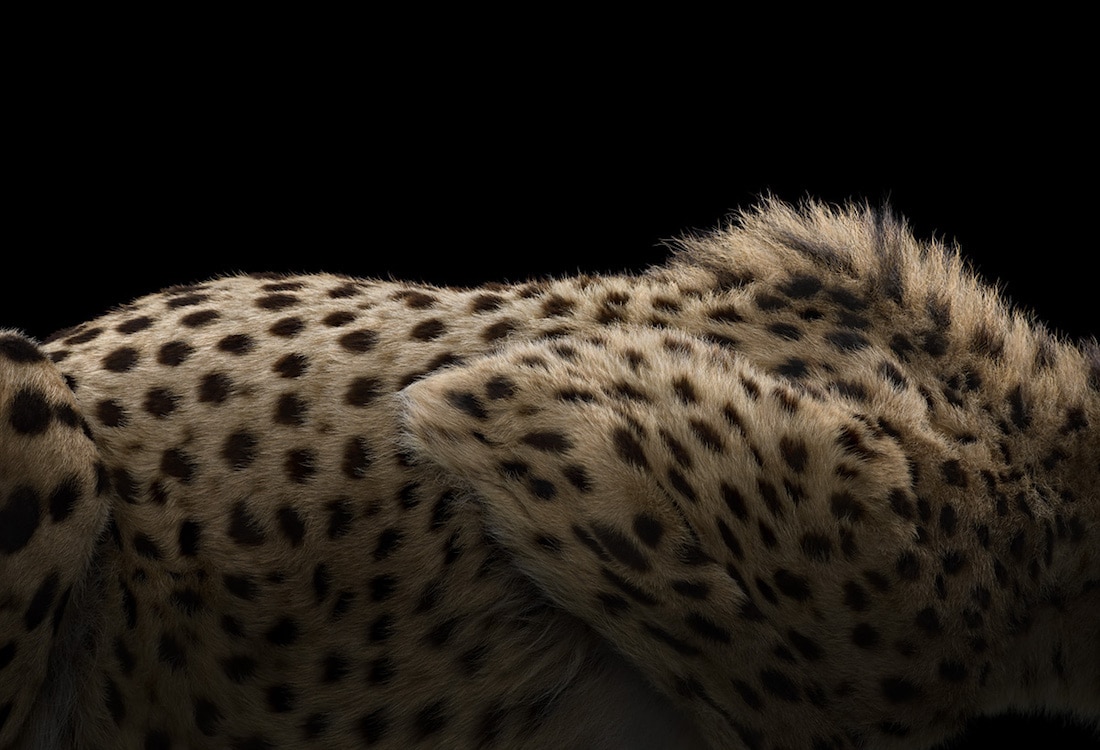
Cheetah
Which animal(s) would you like to feature in the future?
I’d love to work with a gorilla and a panda, but so far they have eluded me.
And, finally, do you have any upcoming projects?
Currently I’m working on a new book and planning future shoots.
See more stunning wildlife portraits from Affinity.
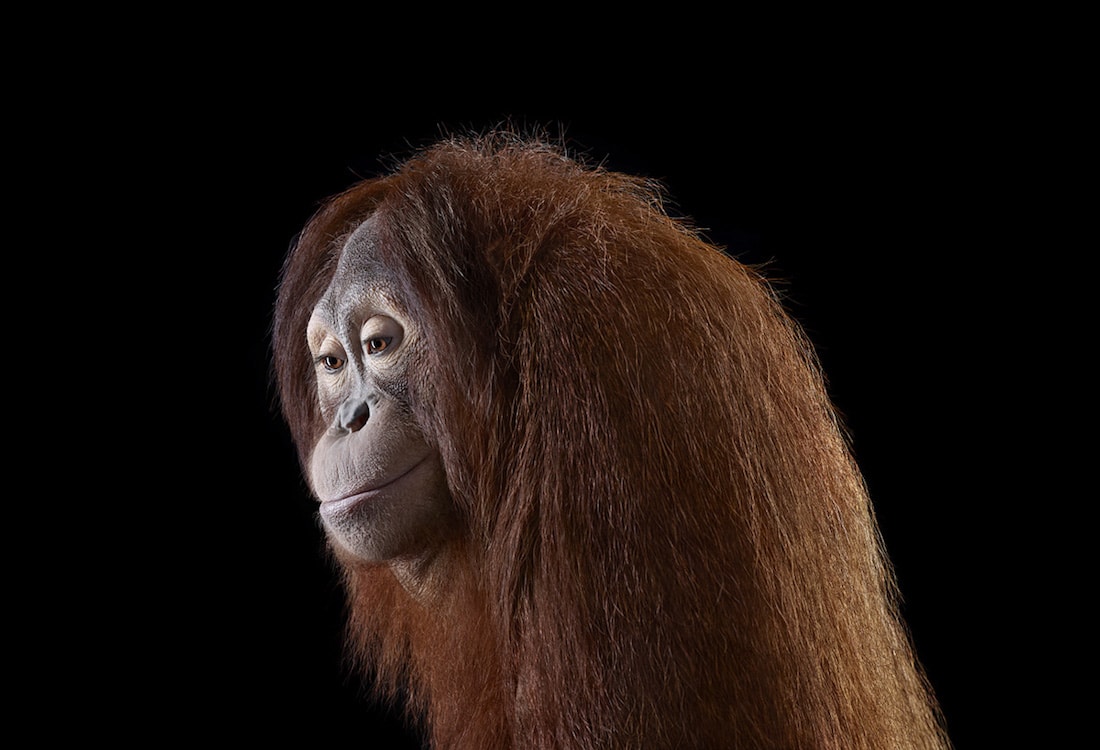
Orangutan
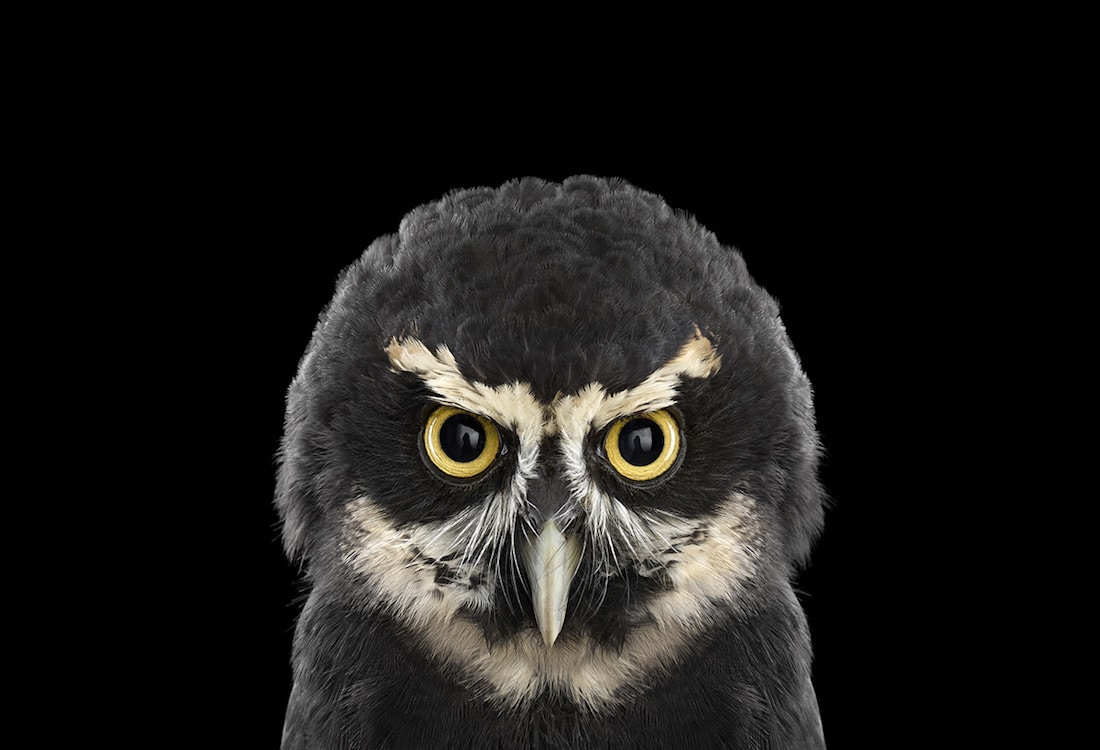
Spectacled Owl
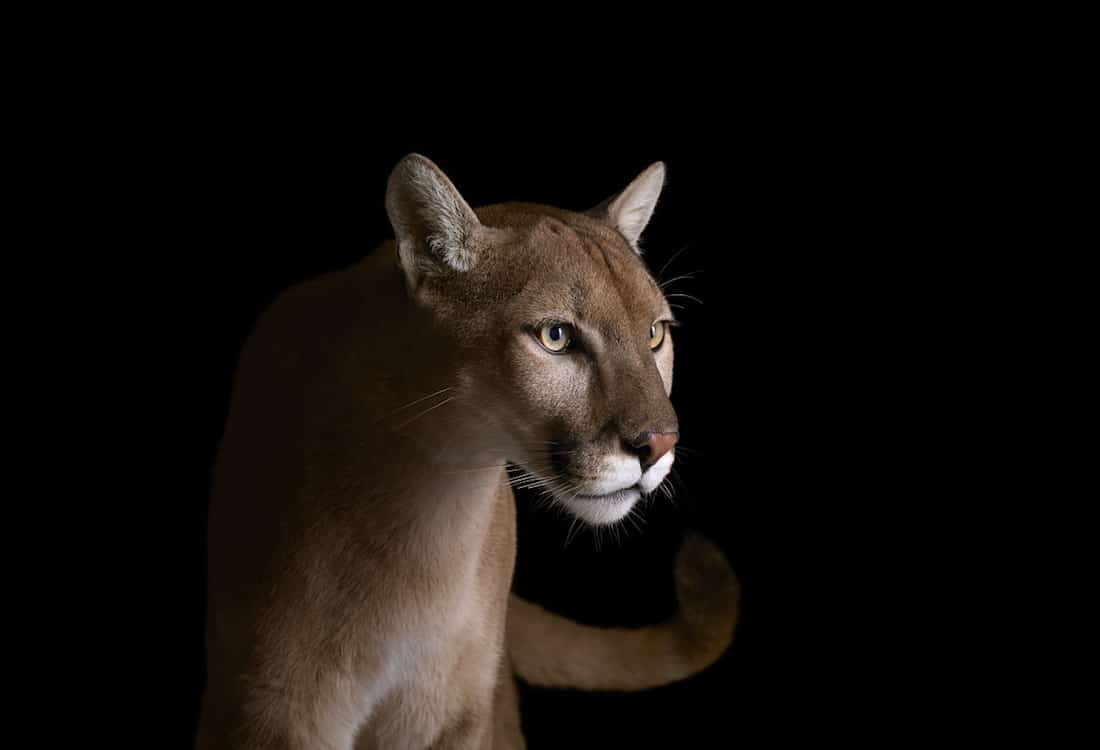
Mountain Lion
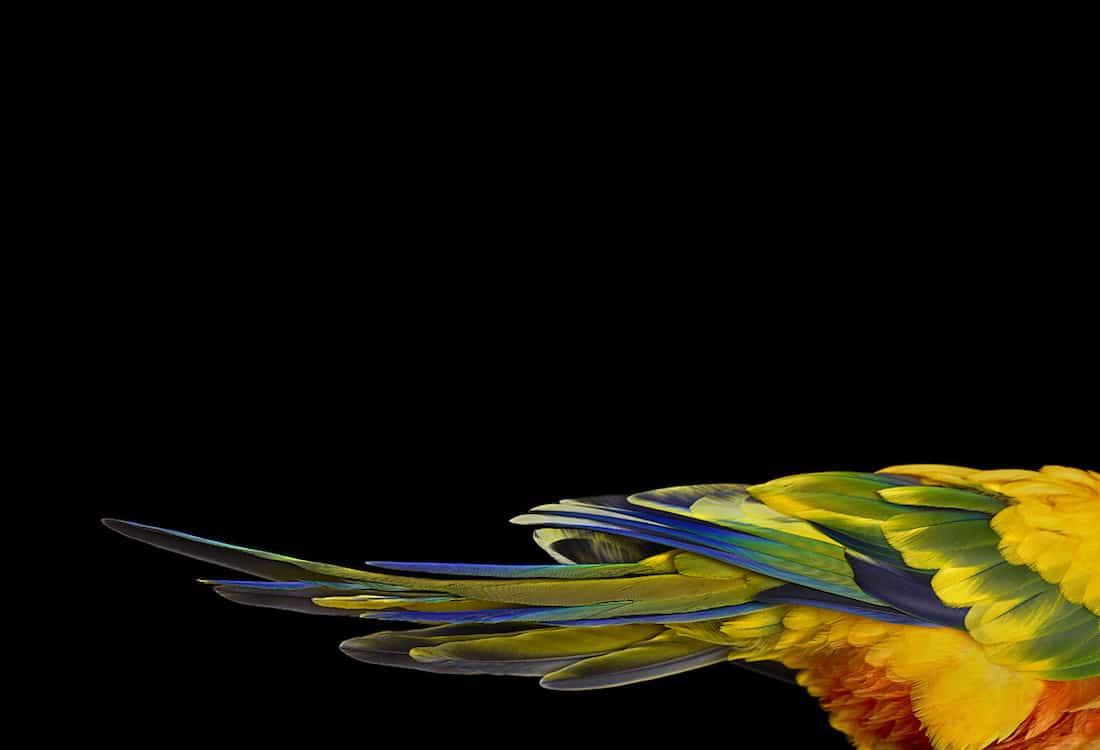
Sun Conure
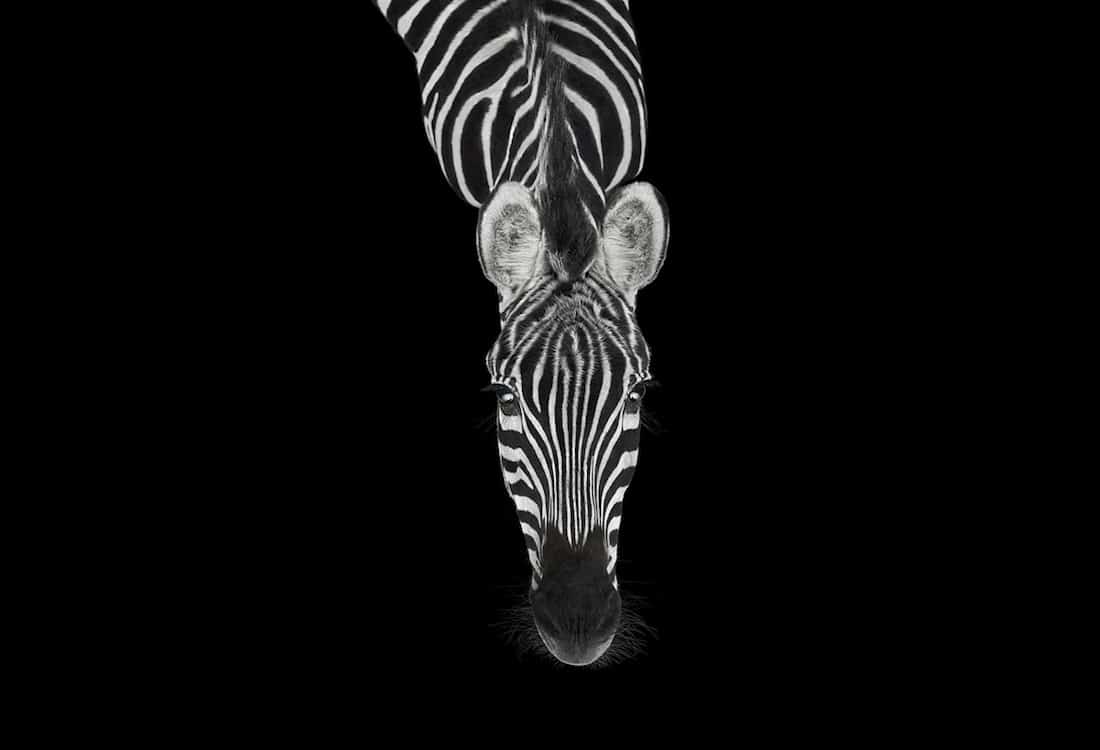
Zebra
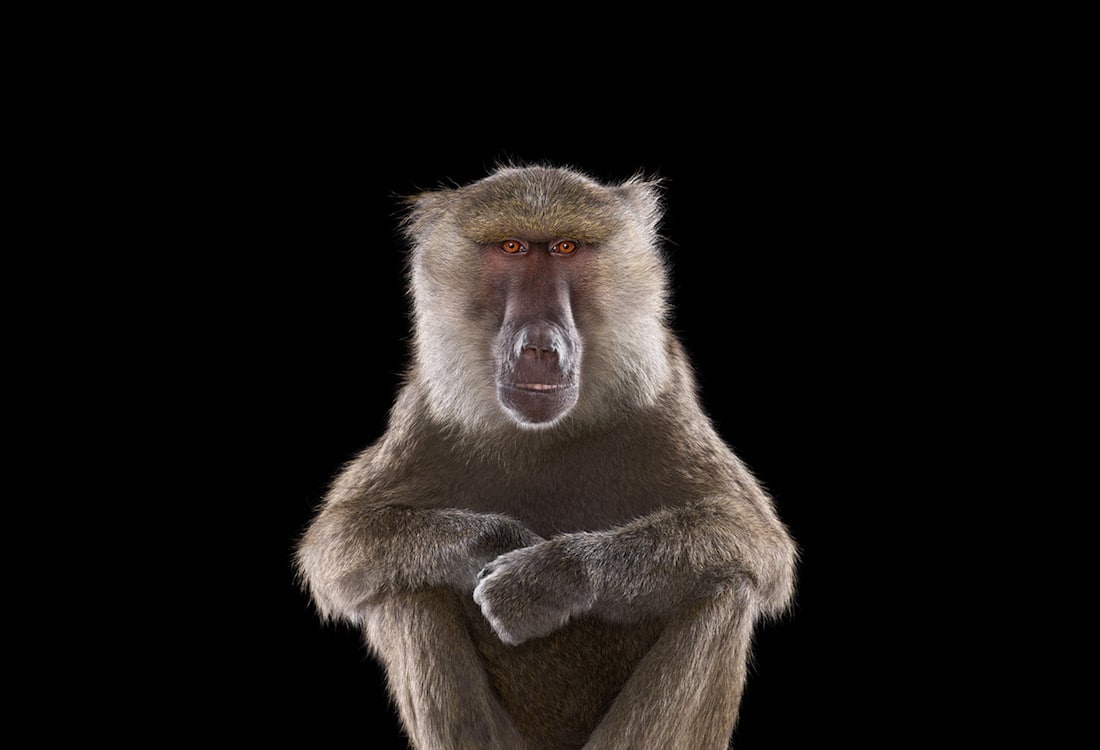
Baboon
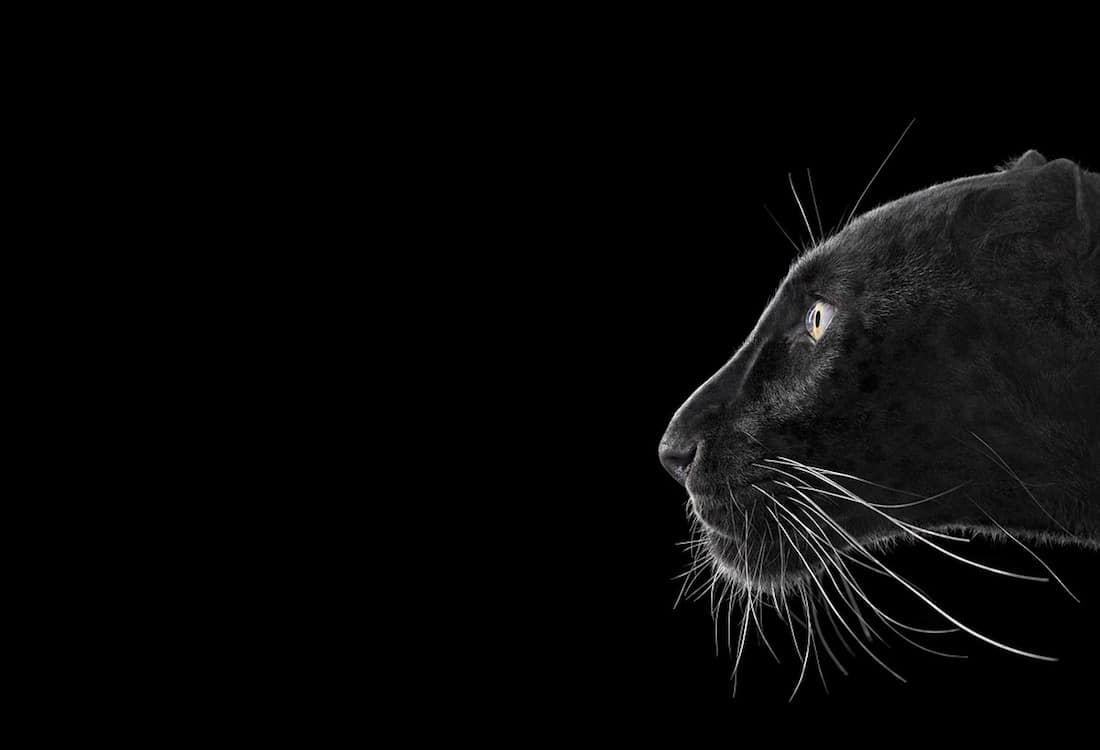
Black Leopard
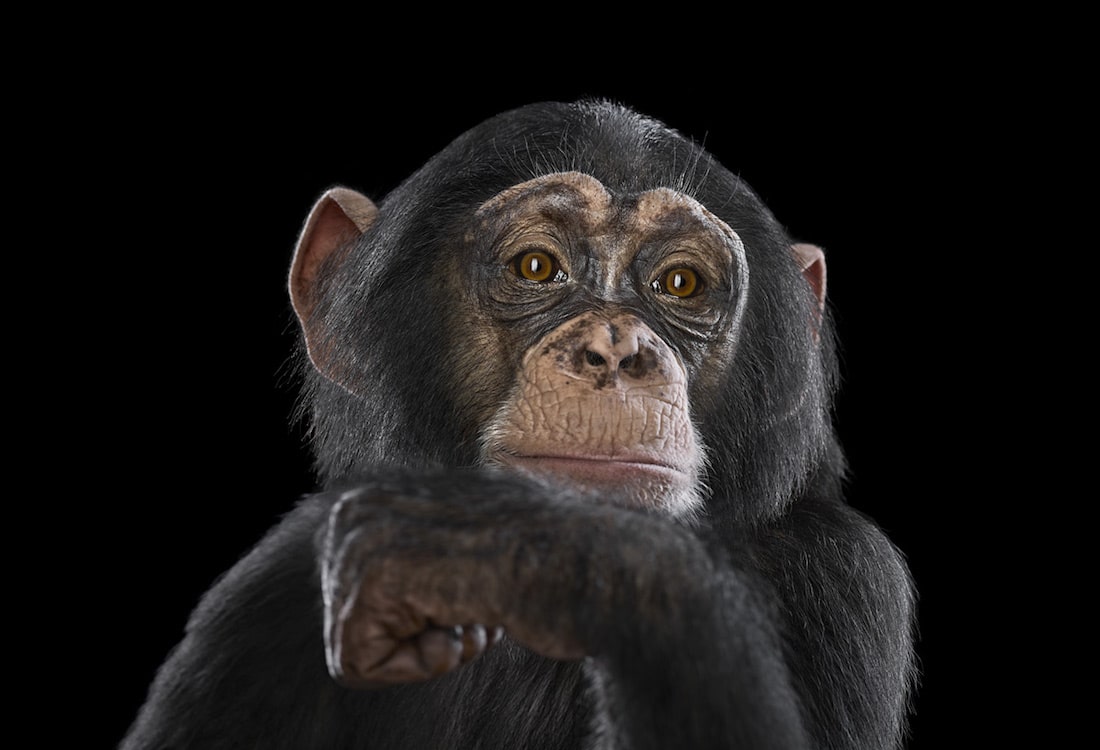
Chimpanzee
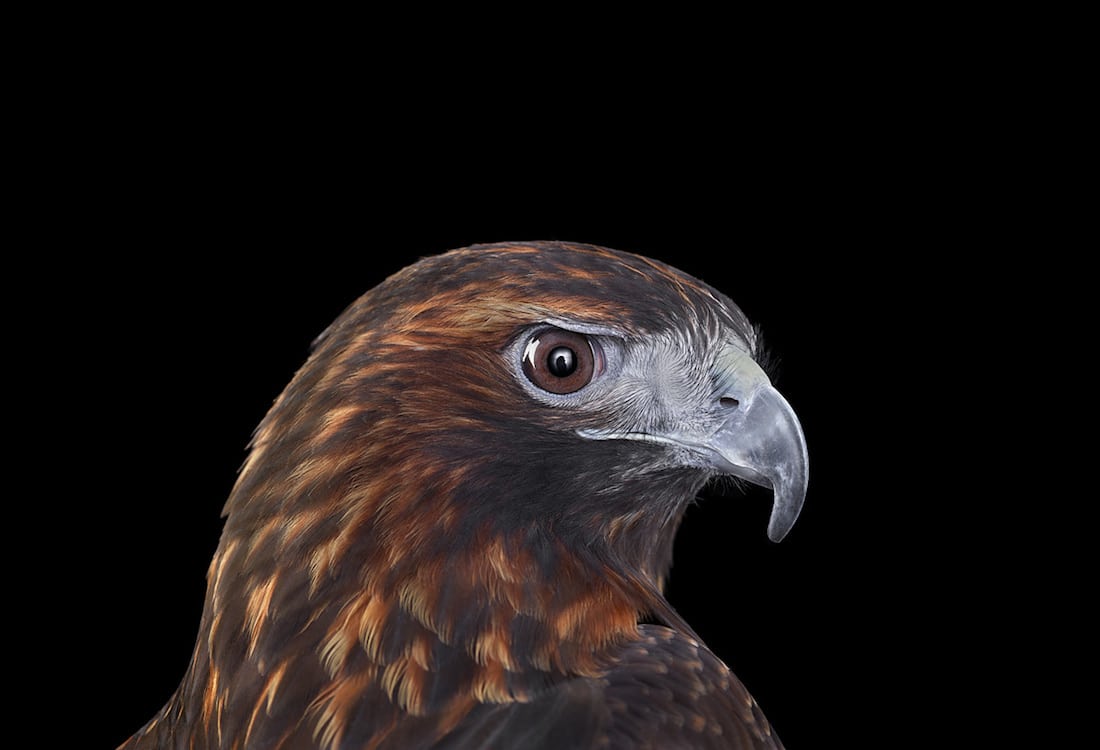
Red-Tailed Hawk
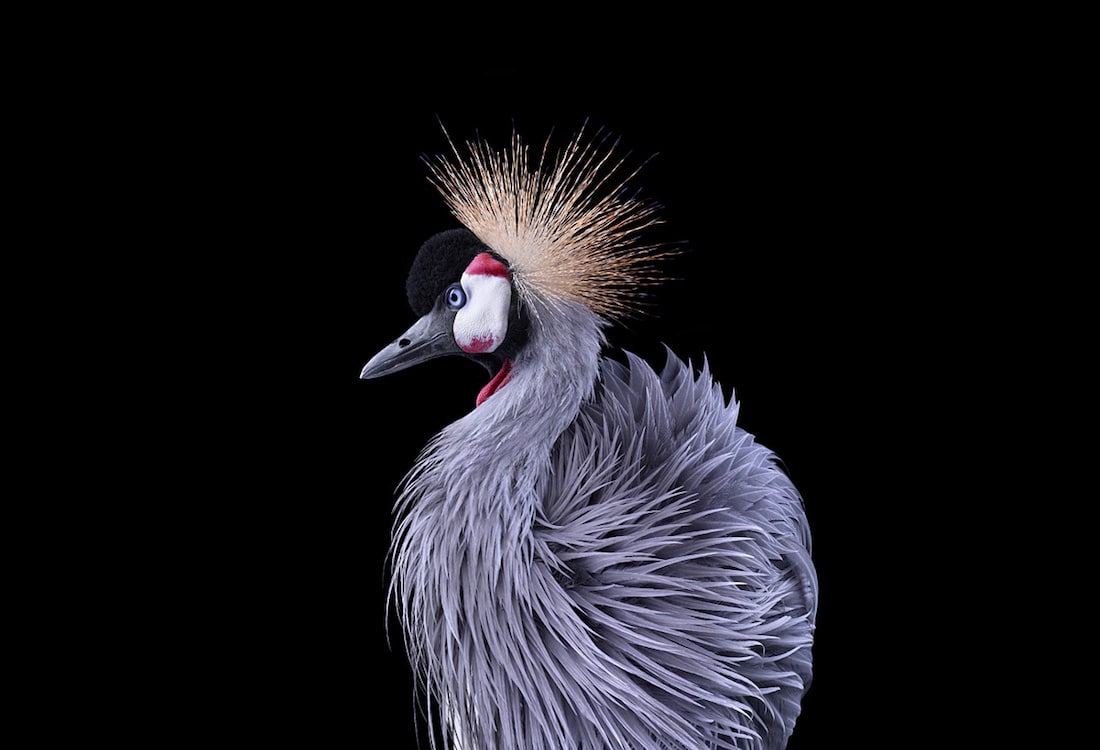
African Crowned Crane
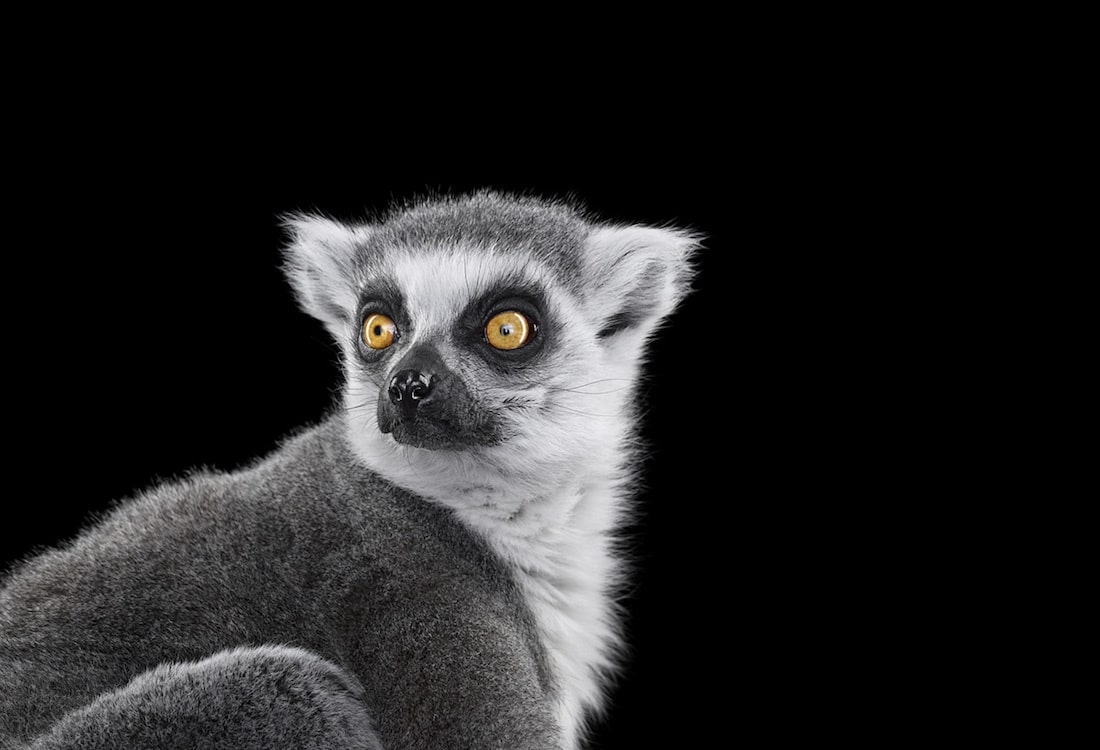
Ring-Tailed Lemur
